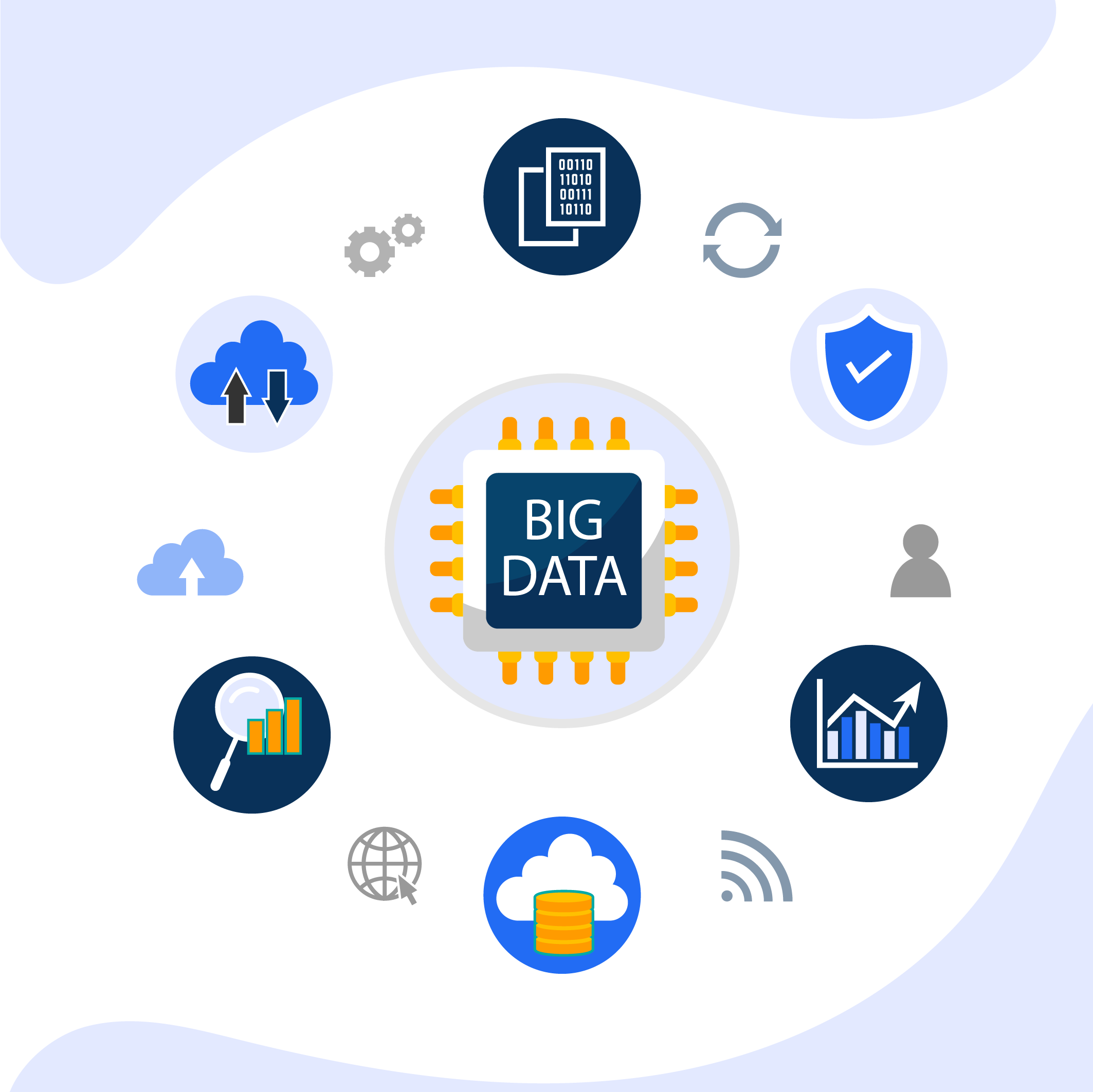What is Big Data?
Big Data refers to the massive amount of data generated daily by individuals, businesses, and machines.
This data can come in many different forms, including text, images, audio, and video.
Characteristics of Big Data
Big Data is characterized by its volume, velocity, and variety. The sheer amount of data that is generated every day is staggering, and it is growing at an exponential rate.
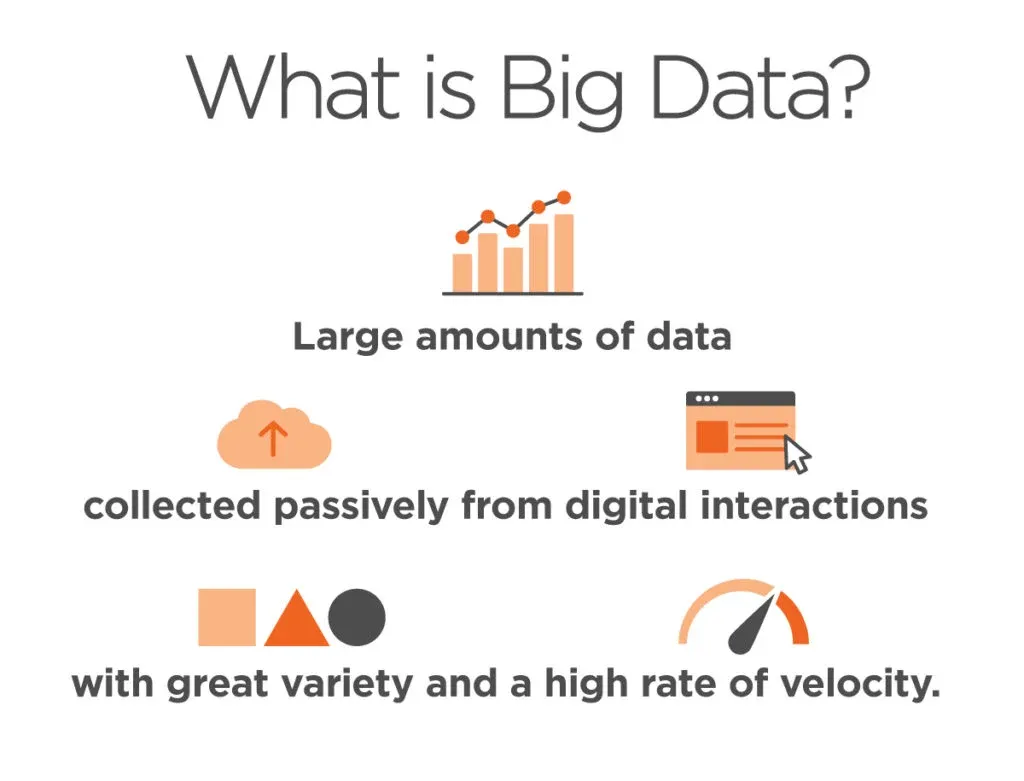
The speed at which this data is generated is also increasing, making it difficult to manage. Additionally, the data comes in many forms, making it challenging to analyze.
Importance of Big Data
Big Data is essential for businesses and organizations that want to gain insights into their customers, markets, and operations.
By analyzing Big Data, businesses can identify patterns and trends that can help them make more informed decisions.
Big Data Technologies
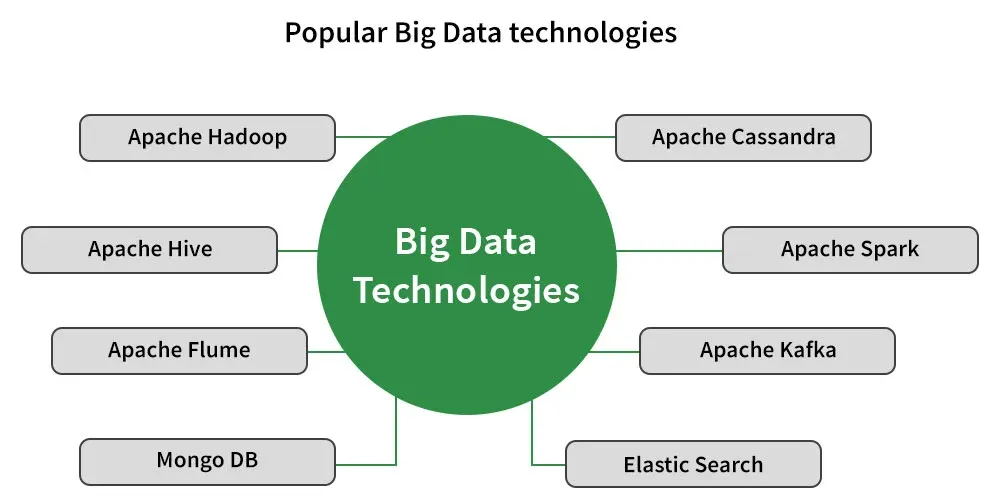
Hadoop
Hadoop is an open-source software framework that is used to store and process large data sets.
It is designed to be highly scalable and can process data in parallel across many different machines.
Spark
Spark is an open-source data processing engine that is designed to be faster and more flexible than Hadoop.
It can be used to process batch and streaming data and can be integrated with various data sources.
Apache Kafka
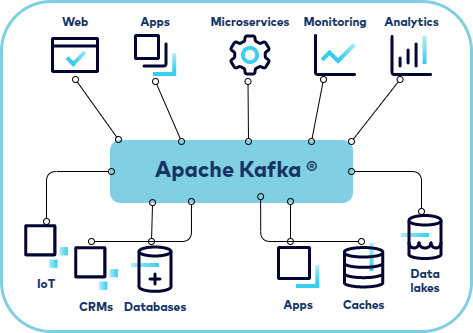
Apache Kafka is a distributed streaming platform that is used to handle large amounts of data in real-time. It is often used in conjunction with Spark and other Big Data technologies.
NoSQL
NoSQL is a database technology that is designed to handle large amounts of unstructured data. It is often used in conjunction with Big Data technologies to store and manage data.
MapReduce
MapReduce is a programming model that is used to process large amounts of data in parallel across many different machines. It is often used in conjunction with Hadoop.
Big Data Analytics
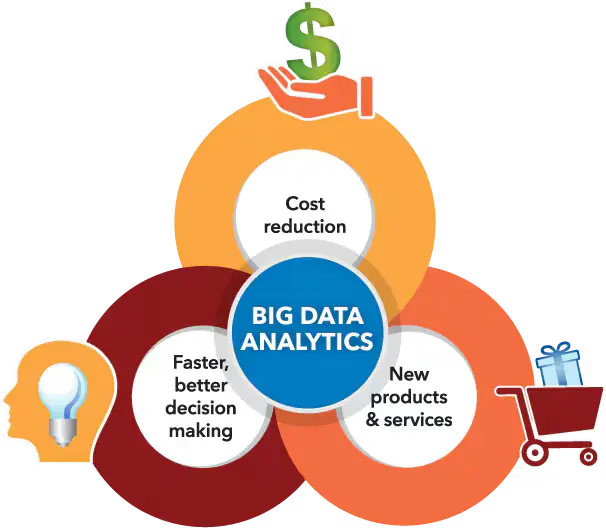
Big Data Analytics refers to analyzing large amounts of data to gain insights and make informed decisions.
It involves using a variety of tools and techniques to process and analyze data.
Types of Big Data Analytics
Big Data Analytics has four main types: descriptive, diagnostic, predictive, and prescriptive.
Descriptive analytics is used to summarize and describe data, while diagnostic analytics is used to identify the causes of problems.
Predictive analytics is used to forecast future trends, while prescriptive analytics is used to identify the best course of action.
Benefits of Big Data Analytics
Big Data Analytics can provide many benefits, including better decision-making, increased efficiency, and improved customer experiences.
By analyzing Big Data, businesses can gain insights into their customers, markets, and operations, which can help them make more informed decisions.
Challenges of Big Data Analytics
Big Data Analytics can also present many challenges, including data quality issues, privacy concerns, and the need for specialized skills and resources.
It can be difficult to manage and analyze large amounts of data, especially in many different forms.
Big Data Architecture
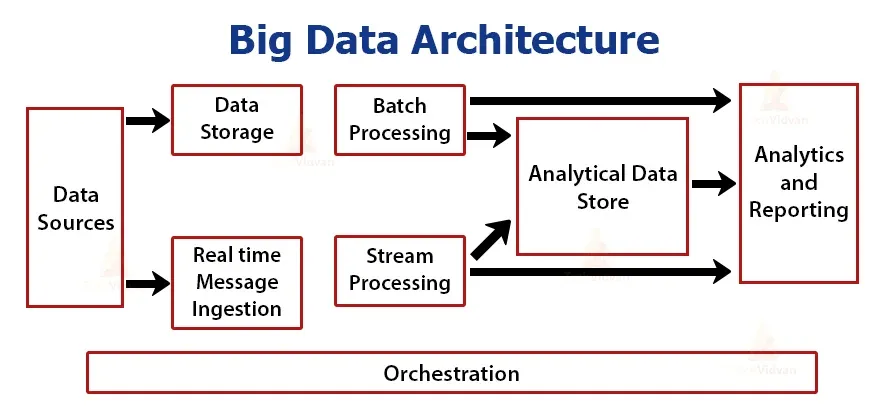
Big Data Architecture refers to designing and implementing the infrastructure and systems needed to manage and process large amounts of data.
It involves many components, including data storage, processing, and analysis.
Components of Big Data Architecture
The components of Big Data Architecture can vary depending on the organization's specific needs, but typically include data storage systems, data processing engines, and data analysis tools.
These components can be deployed in a variety of ways, including on-premises, in the cloud, or in a hybrid environment.
Designing Big Data Architecture
Designing an effective Big Data Architecture requires careful planning and consideration of the organization's needs and goals.
It involves identifying the data sources, defining the data schema, and selecting the appropriate tools and technologies for processing and analyzing the data.
Big Data Tools and Platforms
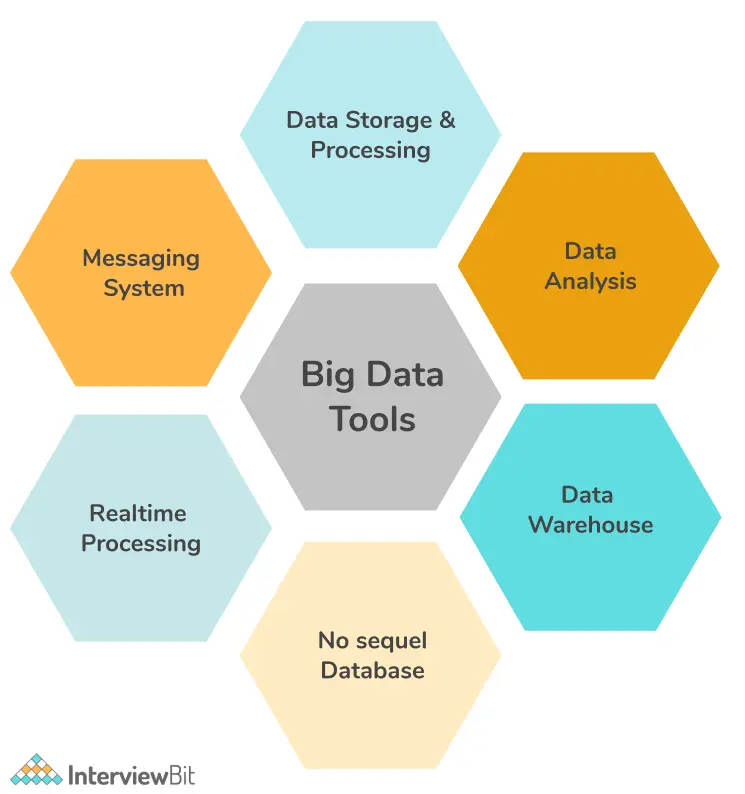
Big Data Tools
There are many different tools available for managing and analyzing Big Data.
These include tools for data processing and storage, such as Hadoop and Spark, as well as tools for data visualization and analysis, such as Tableau and Power BI.
Big Data Platforms
Big Data Platforms are software environments that provide a complete solution for managing and analyzing large amounts of data.
These platforms typically include various tools and technologies for processing, storing, and analyzing data, as well as security and management features.
Comparison of Big Data Tools and Platforms
Many different Big Data tools and platforms are available, each with their own strengths and weaknesses.
The choice of tool or platform will depend on the specific needs of the organization, as well as factors such as cost, scalability, and ease of use.
Data Management in Big Data
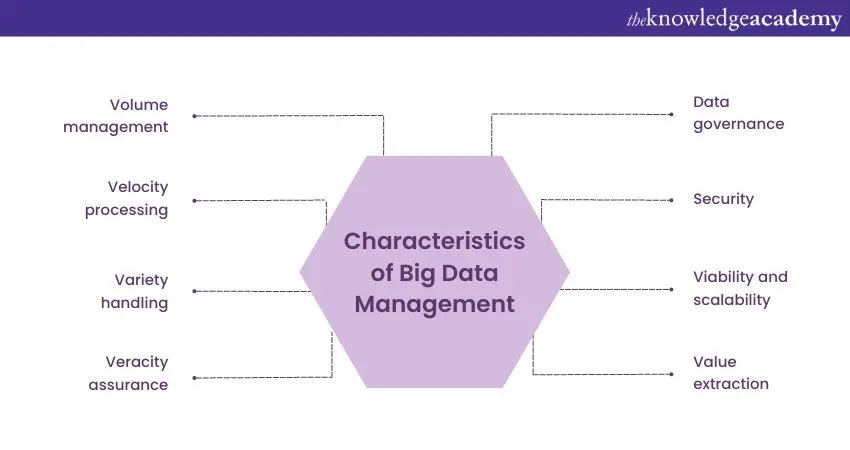
Effective data management is essential for Big Data projects.
It involves ensuring that data is accurate, secure, and properly organized and developing policies and procedures for data governance.
Data Governance
Data Governance involves establishing policies and procedures for managing and protecting data.
This includes defining data standards, ensuring data quality, and compliance with data privacy regulations.
Data Security
Data Security is an important consideration in Big Data projects, as large amounts of data can be a target for cyber attacks.
Effective data security involves implementing appropriate security measures, such as access controls, encryption, and monitoring.
Data Quality
Ensuring data quality is a critical component of Big Data projects. Poor data quality can lead to inaccurate analysis and incorrect decisions.
Effective data quality management involves identifying and resolving data quality issues and implementing processes to ensure ongoing data quality.
Machine Learning and Big Data
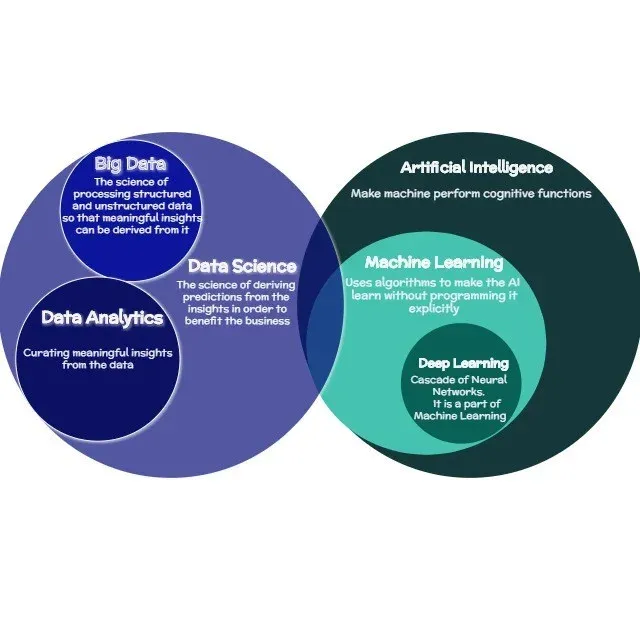
Machine Learning is a subfield of Artificial Intelligence that involves the development of algorithms that can learn from data and make predictions or decisions based on that data.
Applications of Machine Learning in Big Data
Machine Learning is widely used in Big Data projects to analyze and make predictions based on large amounts of data.
Machine learning applications in Big Data include predictive maintenance, fraud detection, and natural language processing.
Challenges in Machine Learning with Big Data
Machine Learning with Big Data can present many challenges, including specialized skills and resources, data quality issues, and effective data management and governance.
Big Data Use Cases
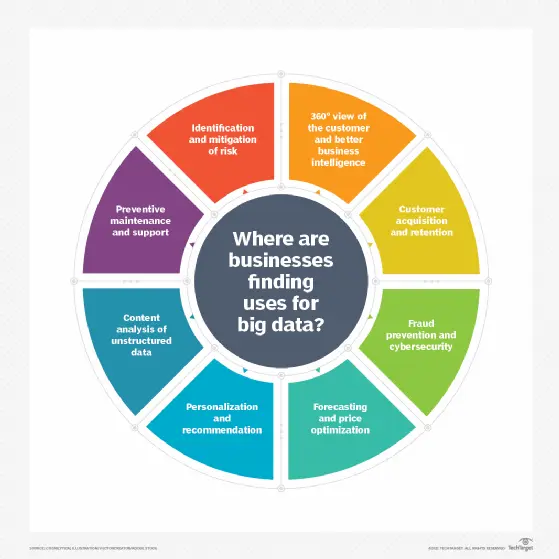
Here are some prominent use cases of big data:
- Healthcare: Big Data is being used in the healthcare industry to improve patient outcomes, reduce costs, and accelerate medical research.
Big data applications in healthcare include patient monitoring, drug discovery, and disease diagnosis.
- Retail: Big Data transforms the retail industry by providing insights into customer behavior, preferences, and trends.
Retailers use Big Data to improve inventory management, optimize pricing strategies, and personalize customer experiences.
- Finance: Big Data is revolutionizing the finance industry by providing real-time insights into market trends and customer behavior.
Big data applications in finance include fraud detection, risk management, and trading analytics.
- Manufacturing: Big Data is being used in the manufacturing industry to improve efficiency, reduce costs, and optimize supply chain operations.
Big data applications in manufacturing include predictive maintenance, quality control, and supply chain optimization.
Big Data Challenges
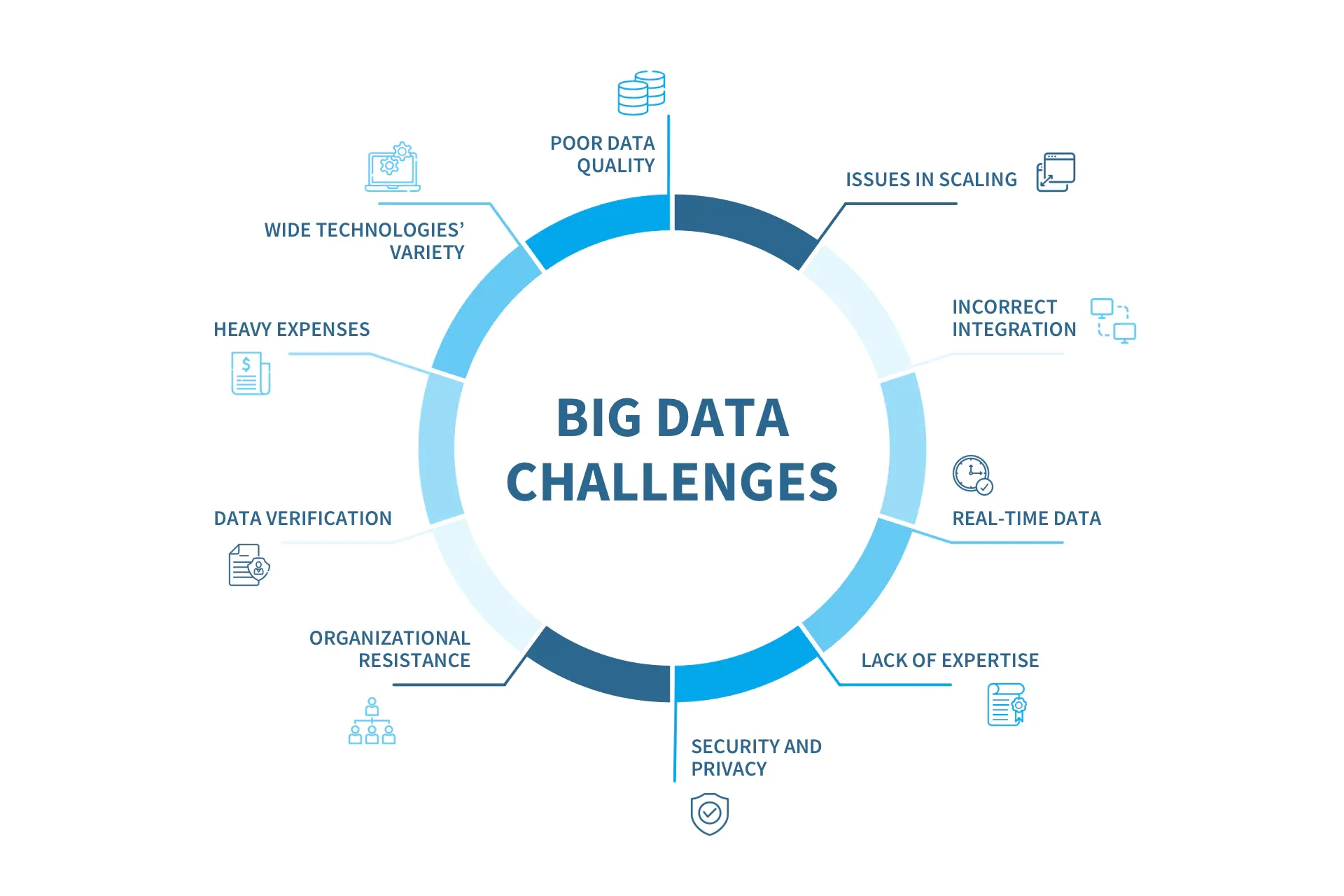
Big data presents several challenges that organizations need to address to effectively harness its potential. Here are some key challenges:
- Data Privacy: Data Privacy is a critical issue in Big Data projects, as large amounts of personal data are often collected and analyzed.
Organizations must ensure that they comply with data privacy regulations and take appropriate measures to protect sensitive data.
- Data Integration: Big Data projects often involve integrating data from multiple sources, which can be a complex and challenging.
Data integration requires careful planning and consideration of data formats, schemas, and structures.
- Data Quality: Ensuring data quality is a major challenge in Big Data projects, as large amounts of data can be difficult to manage and maintain.
Organizations must implement processes and tools to ensure ongoing data quality and accuracy.
- Scalability: Scalability is a key consideration in Big Data projects, as the amount of data being processed and analyzed can quickly grow beyond the capacity of traditional systems. Organizations must select tools and platforms that can scale to meet their needs.
Big Data Future
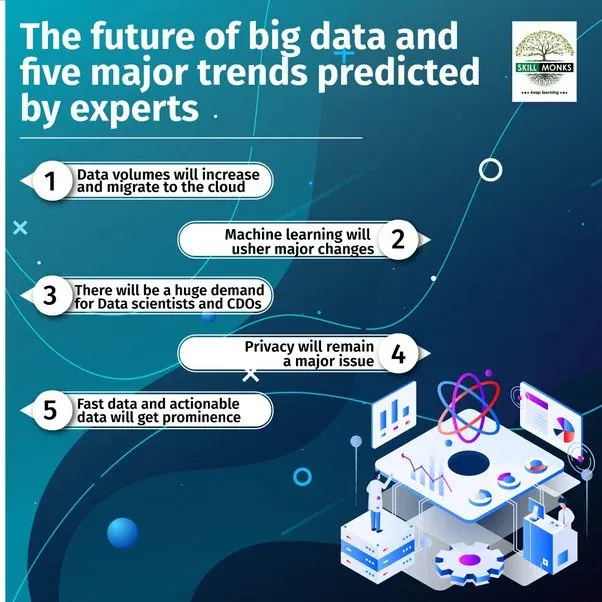
Here are some key trends and directions for big data in the future:
- Emerging Trends: Big Data is constantly evolving, with new technologies and approaches always emerging. Emerging trends in Big Data include edge computing, blockchain, and the Internet of Things.
- Future Applications: The future of Big Data is filled with exciting possibilities, including applications in fields such as agriculture, transportation, and energy.
Big Data has the potential to revolutionize these industries by providing insights and enabling new approaches to problem-solving.
- Challenges and Opportunities: While the future of Big Data is promising, it also presents significant challenges and opportunities.
Organizations must be prepared to adapt to new technologies and approaches while addressing issues such as data privacy, data quality, and scalability.
Frequently Asked Questions (FAQs)
What are the key characteristics of Big Data?
Big Data is defined by its volume, velocity, variety, veracity, and value, which describe the size, speed of generation, data types, accuracy, and usefulness of the data.
What is the role of Big Data in artificial intelligence?
Big Data provides the foundation for AI systems to learn, analyze, and make predictions, enabling advanced applications like machine learning, natural language processing, and computer vision.
How does Big Data impact privacy and security concerns?
As Big Data involves collecting and storing large amounts of information, it raises concerns about data privacy, security breaches, and compliance with data protection regulations.
What industries benefit most from Big Data analytics?
Big Data analytics benefits various industries, including finance, healthcare, retail, manufacturing, transportation, and telecommunications, by providing insights that enhance decision-making and business processes.
How do Big Data and data visualization work together?
Data visualization tools help transform complex Big Data sets into understandable and actionable visual representations, enabling decision-makers to quickly identify trends, patterns, and correlations.
